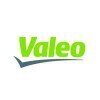Filter interviews by
JTEKT Diploma Trainee Engineer Interview Questions and Answers
9 Interview questions
Stress is the force applied to a material, while strain is the resulting deformation or change in shape.
Stress is a measure of the internal resistance of a material to deformation under an applied force.
Strain is the measure of the deformation or displacement of material in response to stress.
Stress is typically measured in units of force per unit area (such as N/m^2 or Pa), while strain is dimensionless.
Stress ca...
Diesel engines and petrol engines differ in their fuel type, ignition process, and efficiency.
Fuel type: Diesel engines use diesel fuel, while petrol engines use gasoline.
Ignition process: Diesel engines use compression ignition, while petrol engines use spark ignition.
Efficiency: Diesel engines are generally more fuel-efficient than petrol engines.
Examples: Cars, trucks, and buses often use petrol engines, while ...
An encoder is a device used to convert motion or position into a coded signal.
Encoders are commonly used in robotics, CNC machines, and industrial automation.
They can be either absolute or incremental, with absolute encoders providing a unique code for each position and incremental encoders providing a relative change in position.
Encoders can be rotary or linear, depending on the type of motion being measured.
They...
A piston is a component in an engine that moves up and down in a cylinder, converting pressure into mechanical motion. A crankshaft is a rotating shaft that converts reciprocating motion into rotational motion. A bearing is a device that supports and reduces friction between moving parts.
Piston: Moves up and down in a cylinder, sealed by piston rings. Transfers force from expanding gases to the crankshaft.
Cranksha...
PLC stands for Programmable Logic Controller. It is an industrial computer used to automate processes.
PLCs are used to control and monitor industrial processes such as assembly lines, power plants, and water treatment facilities.
They are programmed using ladder logic or other programming languages.
PLCs can be used to control various types of equipment such as motors, valves, and sensors.
They are designed to operat...
Mechanical properties of materials refer to their ability to withstand applied forces without failure.
Mechanical properties include strength, hardness, toughness, ductility, and elasticity.
Strength is the ability of a material to withstand an applied force without failure.
Hardness is the resistance of a material to deformation or scratching.
Toughness is the ability of a material to absorb energy and plastically de...
A working engine is a mechanical device that converts energy into mechanical motion.
Engines are commonly used in vehicles, machinery, and power generation.
They typically operate by burning fuel to create a controlled explosion, which drives pistons or turbines.
Different types of engines include internal combustion engines, steam engines, and gas turbines.
Engines require various components such as cylinders, piston...
A transformer is an electrical device that transfers electrical energy from one circuit to another through electromagnetic induction.
Transformers are used to either step up or step down voltage levels.
Step down transformers decrease voltage levels, while step up transformers increase voltage levels.
Types of transformers include power transformers, distribution transformers, isolation transformers, autotransformers...
Rectifier, types of motor, difference between servo motor and induction motor
Rectifier is an electrical device that converts alternating current (AC) to direct current (DC)
Types of motors include DC motors, AC motors, servo motors, and induction motors
Servo motors are used in applications that require precise control of position, velocity, and acceleration
Induction motors are commonly used in industrial applicatio...
JTEKT Diploma Trainee Engineer Interview Experiences
7 interviews found
(2 Questions)
- Q1. Mechanical properties of material
- Ans.
Mechanical properties of materials refer to their ability to withstand applied forces without failure.
Mechanical properties include strength, hardness, toughness, ductility, and elasticity.
Strength is the ability of a material to withstand an applied force without failure.
Hardness is the resistance of a material to deformation or scratching.
Toughness is the ability of a material to absorb energy and plastically deform ...
- Q2. What is difference between stress and strain.
- Ans.
Stress is the force applied to a material, while strain is the resulting deformation or change in shape.
Stress is a measure of the internal resistance of a material to deformation under an applied force.
Strain is the measure of the deformation or displacement of material in response to stress.
Stress is typically measured in units of force per unit area (such as N/m^2 or Pa), while strain is dimensionless.
Stress can cau...
I applied via Campus Placement and was interviewed before Feb 2021. There were 2 interview rounds.
(4 Questions)
- Q1. Thermal Engineering and industrial engineering
- Q2. Introduction of working engine
- Ans.
A working engine is a mechanical device that converts energy into mechanical motion.
Engines are commonly used in vehicles, machinery, and power generation.
They typically operate by burning fuel to create a controlled explosion, which drives pistons or turbines.
Different types of engines include internal combustion engines, steam engines, and gas turbines.
Engines require various components such as cylinders, pistons, va...
- Q3. Diesel engine petrol engine difference
- Ans.
Diesel engines and petrol engines differ in their fuel type, ignition process, and efficiency.
Fuel type: Diesel engines use diesel fuel, while petrol engines use gasoline.
Ignition process: Diesel engines use compression ignition, while petrol engines use spark ignition.
Efficiency: Diesel engines are generally more fuel-efficient than petrol engines.
Examples: Cars, trucks, and buses often use petrol engines, while heavy...
- Q4. What is piston, crank shaft, bearing
- Ans.
A piston is a component in an engine that moves up and down in a cylinder, converting pressure into mechanical motion. A crankshaft is a rotating shaft that converts reciprocating motion into rotational motion. A bearing is a device that supports and reduces friction between moving parts.
Piston: Moves up and down in a cylinder, sealed by piston rings. Transfers force from expanding gases to the crankshaft.
Crankshaft: C...
(1 Question)
- Q1. Self introduction and normal technical question
(1 Question)
- Q1. Tell me about your self? Occupation of your father?
I applied via Recruitment Consulltant and was interviewed in Jan 2023. There were 3 interview rounds.

1st round is aptitude test . This test is conducted offline . After clear this you go for 2nd round.
(2 Questions)
- Q1. Your previous work experience
- Ans.
I have previous work experience as a Diploma Trainee Engineer.
Worked as a trainee engineer at XYZ Company for 1 year
Assisted senior engineers in designing and implementing engineering projects
Gained hands-on experience in troubleshooting and maintenance of equipment
Collaborated with cross-functional teams to ensure project success
Participated in regular training sessions to enhance technical skills
- Q2. Your family details and your full introduction.
- Ans.
I will provide my family details and a full introduction.
My name is [Your Name].
I come from a family of four, including my parents and a younger sibling.
My father is a retired engineer and my mother is a homemaker.
I completed my Bachelor's degree in Engineering from [University Name].
I have a strong interest in technology and problem-solving.
During my studies, I actively participated in various technical projects and c...
Interview Preparation Tips
I applied via Naukri.com and was interviewed in Sep 2021. There were 3 interview rounds.
Interview Questionnaire
6 Questions
- Q1. About of trasister, capacitor,diode,ohms low,total energy... etc
- Q2. Rectifier, types of motor, difference between servo motor and induction motor...etc
- Ans.
Rectifier, types of motor, difference between servo motor and induction motor
Rectifier is an electrical device that converts alternating current (AC) to direct current (DC)
Types of motors include DC motors, AC motors, servo motors, and induction motors
Servo motors are used in applications that require precise control of position, velocity, and acceleration
Induction motors are commonly used in industrial applications du...
- Q3. Use of encoder.
- Ans.
An encoder is a device used to convert motion or position into a coded signal.
Encoders are commonly used in robotics, CNC machines, and industrial automation.
They can be either absolute or incremental, with absolute encoders providing a unique code for each position and incremental encoders providing a relative change in position.
Encoders can be rotary or linear, depending on the type of motion being measured.
They are ...
- Q4. What is transformer, types of transformer, step down t/f, step up t/f...
- Ans.
A transformer is an electrical device that transfers electrical energy from one circuit to another through electromagnetic induction.
Transformers are used to either step up or step down voltage levels.
Step down transformers decrease voltage levels, while step up transformers increase voltage levels.
Types of transformers include power transformers, distribution transformers, isolation transformers, autotransformers, and...
- Q5. What is PLC ., Use of plc...
- Ans.
PLC stands for Programmable Logic Controller. It is an industrial computer used to automate processes.
PLCs are used to control and monitor industrial processes such as assembly lines, power plants, and water treatment facilities.
They are programmed using ladder logic or other programming languages.
PLCs can be used to control various types of equipment such as motors, valves, and sensors.
They are designed to operate in ...
- Q6. About of contactor,relay , VFD ,
Interview Preparation Tips
Skills evaluated in this interview

(1 Question)
- Q1. Regarding your syllabus
Interview Preparation Tips
Interview Questionnaire
2 Questions
- Q1. About Tecnical knowlegde
- Q2. All the details
Interview Preparation Tips
Top trending discussions






Interview questions from similar companies

I applied via Recruitment Consultant and was interviewed in Jun 2019. There were 3 interview rounds.
Interview Questionnaire
2 Questions
- Q1. About lathe machines and
- Q2. Previous company work
- Ans.
I worked as a Junior Engineer at XYZ Company for 2 years, where I gained experience in project management and technical troubleshooting.
Managed multiple projects simultaneously
Collaborated with cross-functional teams to achieve project goals
Resolved technical issues on the production line
Implemented process improvements to increase efficiency
Interview Preparation Tips

I applied via Campus Placement and was interviewed before Dec 2020. There were 3 interview rounds.
Interview Questionnaire
3 Questions
- Q1. Isometric view
- Q2. First angle and third angle method
- Q3. Orthogonal view
Interview Preparation Tips

I applied via Referral and was interviewed before Sep 2020. There were 3 interview rounds.
Interview Questionnaire
1 Question
- Q1. Please explain about your profile
- Ans.
Experienced Senior Engineer with a strong background in software development, project management, and team leadership.
Over 10 years of experience in software engineering, specializing in full-stack development.
Led a team of 5 engineers in developing a scalable e-commerce platform, resulting in a 30% increase in sales.
Proficient in multiple programming languages including Java, Python, and JavaScript.
Implemented Agile m...
Interview Preparation Tips
Be bold in your explanations.
Questions mainly fall from your profile explanation.
Try to tell what you have worked with.
JTEKT Interview FAQs
Tell us how to improve this page.
JTEKT Interviews By Designations
- JTEKT Diploma Trainee Engineer Interview Questions
- JTEKT Production Engineer Interview Questions
- JTEKT Senior Engineer Interview Questions
- JTEKT Production Interview Questions
- JTEKT Assistant Manager Interview Questions
- JTEKT Quality Engineer Interview Questions
- JTEKT Maintenance Engineer Interview Questions
- JTEKT Junior Engineer Interview Questions
- Show more
Interview Questions for Popular Designations
- Senior Engineer Interview Questions
- Design Engineer Interview Questions
- Production Engineer Interview Questions
- Junior Engineer Interview Questions
- Service Engineer Interview Questions
- Mechanical Engineer Interview Questions
- Maintenance Engineer Interview Questions
- Graduate Engineer Interview Questions
- Show more
Overall Interview Experience Rating
based on 7 interview experiences
Difficulty level
Duration
Diploma Trainee Engineer Interview Questions from Similar Companies
JTEKT Diploma Trainee Engineer Reviews and Ratings
based on 82 reviews
Rating in categories
|
Diploma Trainee Engineer
286
salaries
| ₹1.5 L/yr - ₹3.2 L/yr |
|
Junior Engineer
265
salaries
| ₹1.8 L/yr - ₹4.5 L/yr |
|
Section Engineer
185
salaries
| ₹3.5 L/yr - ₹7.4 L/yr |
|
Assistant Manager
181
salaries
| ₹5.7 L/yr - ₹12 L/yr |
|
Senior Engineer
157
salaries
| ₹4.5 L/yr - ₹9.3 L/yr |

Bosch

Hitachi Astemo

Faurecia

Valeo
- Home >
- Interviews >
- JTEKT Interview Questions












